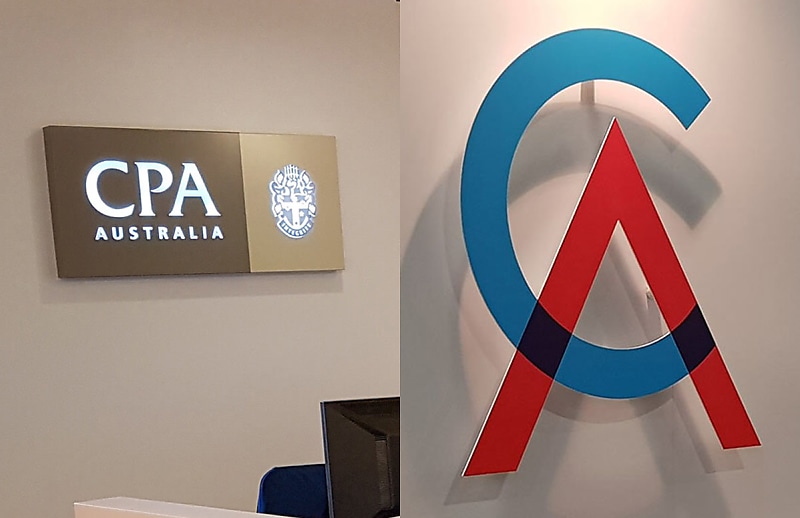Industry bodies and opposition welcome tax reform ambition
TaxAccounting industry bodies have welcomed comments from Treasurer Jim Chalmers signalling the government is open to exploring substantive tax reform.

In his National Press Club address on Wednesday, Jim Chalmers said the government would consider tax reform as a measure to boost productivity and curb public debt.
“No sensible progress can be made on productivity, resilience or budget sustainability without proper consideration of more tax reform,” he said.
“This evolution in our revenue base is one of the reasons tax reform is so crucial to budget sustainability – on top of restraining spending, finding savings and working on longer‑term spending pressures.”
Accounting industry bodies have been calling loudly for broad tax reform for some time now. At the same time, structural budget pressures from defence and the care economy have sparked fiscal deficits over the forward estimates.
Ainslie van Onselen, chief executive of CA ANZ, said tax reform could help the government achieve its goal of addressing Australia’s stubbornly low productivity.
“Tax reform is an important part of boosting productivity – and it’s the right step forward to have it on the table,” van Onselen said.
“Our system is over-reliant on personal income tax, and that is unfairly punishing Australians also facing cost-of-living and housing pressures.”
Chris Freeland, chief executive of CPA Australia, urged the government to commit to a long-term tax reform roadmap at its upcoming productivity roundtable.
“A long-term tax reform roadmap is urgently needed. Australia has gone too long without a clear, coordinated plan to modernise our tax system. This should be a key outcome for the government’s productivity roundtable,” Freeland said.
“That must also include examining and fixing the GST and federal-state arrangements. Australians deserve a mature and honest conversation about the trade-offs required to fund the services and resources they expect.”
Reform must rebalance the tax system to support investment, innovation and productivity without placing unfair pressure on any one group, Freeland said.
The Australian Chamber of Commerce and Industry echoed these sentiments and said serious discussion on tax reform was both timely and necessary.
“Our tax system is outdated and increasingly a drag on productivity. Reforming it is essential to driving investment, boosting economic resilience, and lifting living standards,” chief executive Andrew McKellar said.
“It is entirely possible to improve the efficiency of the tax system while maintaining budget sustainability. Better targeted spending and smarter tax settings can deliver stronger outcomes for business and the broader economy.”
Opposition finance spokesman James Paterson has spoken in support of holistic tax reform, with one caveat: no higher taxes.
“I am concerned that the Treasurer is possibly preparing the ground here for higher taxes,” Paterson told Sky News on Thursday.
“We are up for a conversation with the government to work with them constructively to make our tax system more efficient, to collect revenues in ways that are less distortionary. But we are not going to give them a blank cheque to increase taxes on Australians.”
Commonwealth Bank of Australia economists have warned that structural budget pressures were growing, complicating the case for across-the-board tax cuts.
“In the medium-term, structural pressures on the Budget will continue to build. The era of large revenue upgrades from commodity prices appears behind us and spending pressures remain evident in several areas,” CBA said.
The largest spending items included the NDIS, a new five-year hospital funding deal with the states, and the $368 billion AUKUS security pact.
A recent warning from credit rating agency S&P Global also flagged that Australia’s coveted AAA rating could be at risk if the government continued to take on further debt.
The Treasurer has not ruled out higher taxes as part of the government’s reform agenda, saying that meaningful reform would require trade-offs.
“The easiest thing in the world is for people to come to us and say, we want you to dramatically cut the taxes in our part of the economy and spend dramatically more on our industry without recognising that there are necessary trade‑offs associated with that,” Chalmers said.
He signalled that tax reform would be a point of discussion at the productivity roundtable, set to take place in August.
“Productivity is the primary focus of the roundtable, but not the sole focus. We have 3 related challenges, primarily productivity, but also budget sustainability and making our economy more resilient in the face of all of this global economic volatility.”
“I welcome tax being an important part of the conversation.”




